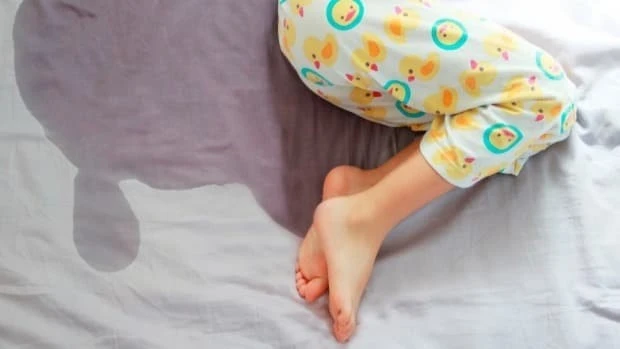Plight of bedwetting children aged 10 years and above

BEDWETTING (nocturnal enuresis) is common in children, but after sometime it stops by itself, even without any medical intervention.
Some bedwetting children go through traumatic experiences because of their unpleasant condition, and may think family friends, neighbours or peers know about it. They can be mistreated by their parents or caretakers, or their peers may embarrass them in front of others each time they disagree on something at school or on the way to or from school. This may aggravate their problem, which has adverse effects on child development.
Even if bedwetting children grow up as happy children, eventually their condition may make them reserved persons because of what they experience, and in the future, they may become unhappy adults.
Saida El Sayed Hassan Ibrahim El-Azzab and her colleagues, in their article titled “Early Childhood Psycho-trauma and Psychological Immunity among Children with Nocturnal Enuresis” which they published in 2023, argue that “Nocturnal enuresis is a harm disorder; it has serious consequences and is stressful for both children and their families. Children are frequently punished and predisposed to physical and emotional abuse. Several children have low self-esteem, are isolated, and perform poorly in education.”
The authors say 20-30 per cent of bedwetting children are subjected to at least one behavioural, psychological, or psychiatric disorder, which is twice the rate of the general population.
Although loving and caring parents may feel bad about the situation of their bedwetting child, they may understand it because they are not swayed by their child’s bedwetting habit, and even if their child may wet his or her bed at night, they may still show that they love and care for him or her. This is responsible parenthood many parents lack.
Harsh parents tend to mistreat their bedwetting children to the extent making them suffer psychologically and live unhappily. They may cane their bedwetting child or even force the child to suck the part of a bed sheet or mattress the child wetted while he or she was asleep.
Doing this, they think, they form the child, but in fact they destroy their child. This shows when children become adults, they might have gone through negative experiences which in some cases become part of the behaviour of adults. For most adults what they are today is a result of what they experienced or the environment in which they grew up.
When I was a boy, I came across a perplexing experience. I was at a certain family and saw a grandmother who at night wrapped up the front part of her grandson’s sexual organ with a paper-like thin layer made by a spider to make her grandson not wet his bed at night. When it was a grand-girl she would pinch her private parts if the girl wetted her bed at night and the girl would wail miserably because of the pain she felt.
A bedwetting child who grows up in such an environment is likely to develop low self-esteem and may feel discomfort in the presence of his or her peers. He or she may also underperform in class if he or she used to perform brilliantly.
Studies show that bedwetting (nocturnal enuresis) normally occurs in children aged 0-5 years and this shouldn’t worry us much because as a child grows up he or she changes and after sometime this condition stops.
Patrina Caldwell, and her colleagues in an article titled “Bedwetting and toileting problems in children” which was published in 2005 argue that bed wetting occurs in up to 20 per cent of 5-year-old and 10 per cent of 10-year-old children, with a spontaneous remission rate of 14 per cent per year.
They suggest that: “Bedwetting can have a considerable impact on children and families, affecting a child’s self-esteem and interpersonal relationships, and his or her performance at school.” They say bedwetting children “are often teased by siblings and friends and are reluctant to participate in school trips requiring an overnight stay or to attend sleepovers.”
An open educational source (Health Direct) says it is very common for children aged 6 years and under to wet the bed. “But older children can wet the bed too. In fact, about 1 in 20 10-year-old children wets the bed. Some children can be affected into their teens.”
Wenjie and colleagues in an article titled “Biometric and visual analysis nocturnal enuresis from 1982 to 2022” suggest that common symptoms of excessive nocturnal urine production and bladder dysfunction include sleep-wake disorder, genetic inheritance, hormonal dysregulation, neurological abnormalities, upper airway obstruction, the circadian rhythm of glomerular filtration rate disorder, and sleep-disordered breathing.
It suffices to say that bedwetting is a challenge to both the child who is a victim of it and his or her family. What is important is to show love and care to the child who wets his or her bed at night, and when it is considered as a health problem, it is good to seek medical advice. Otherwise, as studies show bedwetting children aged 0-5 years should not be considered to have a medical problem at all. It could only be considered a problem when it is experienced in children aged 10 years and above.
Top Headlines
© 2025 IPPMEDIA.COM. ALL RIGHTS RESERVED

























